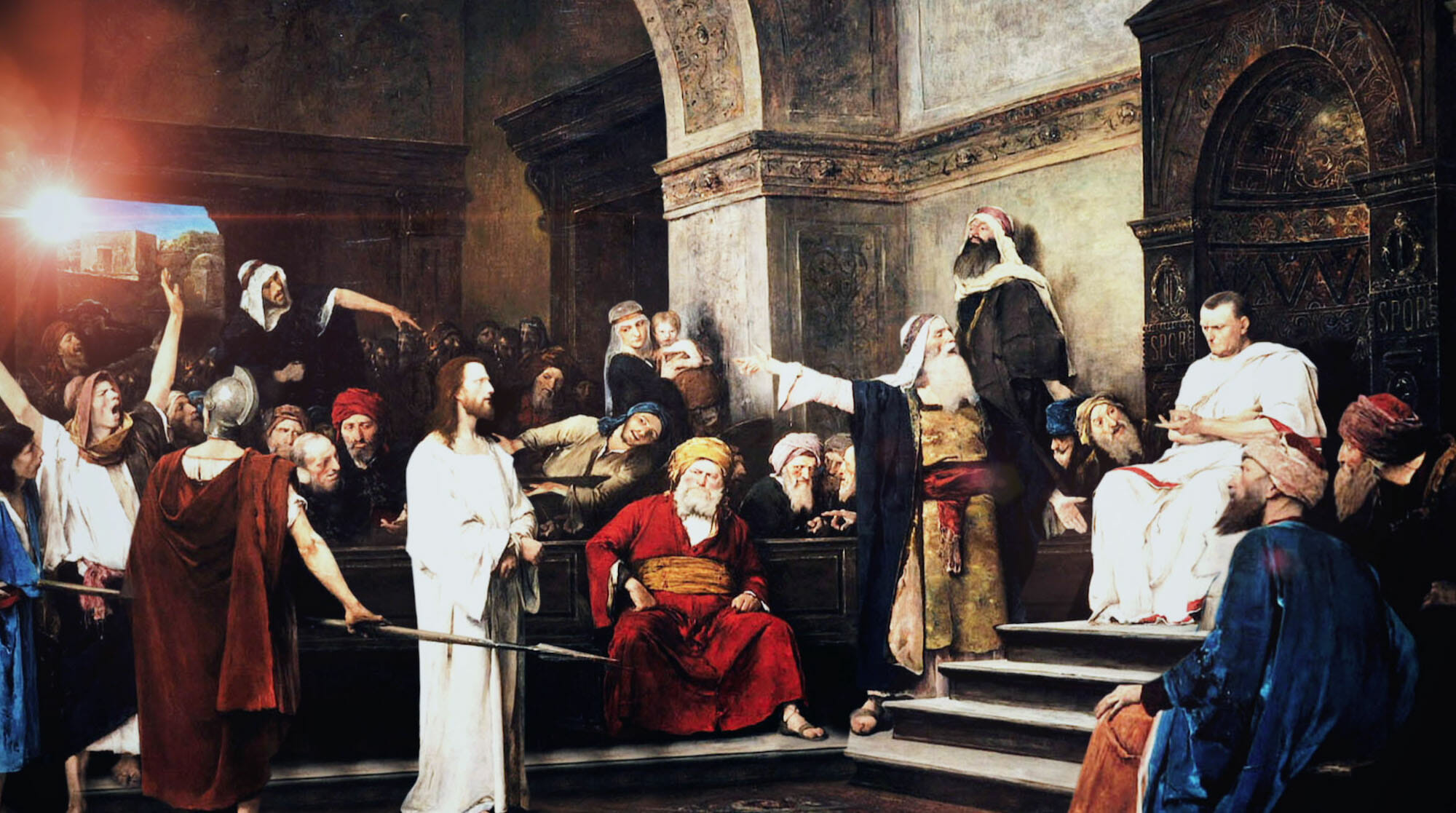
Who killed Jesus?
Debora Jackson
April 9, 2019
As we prepare for the Passion of our Christ, the conversation begins anew about who was responsible for the death of Jesus Christ. I remember the thinly veiled aspersions being cast as I grew up in the church: Romans carried out the deed, but they were put up to it by the Jews. No one ever came out and said that the Jews were to blame for Jesus’ death, but rocket science was not needed to fill in the blanks. The shadow was ever present in the inference, and the concerns born of the passion narrative seemed to justify Jewish mistrust in the broader context. That shadow never went away, but it is looming large once again because anti-Semitism is on the rise at an alarming level. Anti-Semitic acts in France increased by 74 percent in 2018.[i] In Germany last year, 1,641 anti-Semitic acts were reported, according to police, marking their highest level in the past decade.[ii] And in our own country, anti-Semitic hate crimes rose 57 percent in 2017 from 2016, the largest single-year jump on record, according to the Anti-Defamation League.[iii] As Christians, I believe that we have a responsibility to speak out against anti-Semitism, and we can help by acknowledging the truths of the gospel narrative.
First, we must acknowledge the biblical prophecies that affirm Jesus’ fated existence. Quite simply, Jesus was born to die, and the prophets said so years before Jesus’ coming. Isaiah 53 speaks of the servant who was wounded for our sins, but willingly suffered for us in silence like a lamb being led to the slaughter. As followers of Jesus, we see these passages as foreshadowing, but we were not left to guess because Jesus himself confirmed that he would die. Specifically, in Matthew 20:18, Jesus tells the disciples that they would go to Jerusalem where he would be handed over to the chief priests and scribes, who would condemn him to death and deliver him to the Gentiles to be mocked, beaten, and crucified. It cannot get much clearer than that. However, if we missed that intent, Paul confirms the truth of the prophecy saying in Philippians 2:6-8 that Jesus “did not regard equality with God as something to be exploited, but emptied himself, taking the form of a slave, being born in human likeness. And being found in human form, he humbled himself and became obedient to the point of death— even death on a cross.” (NRSV) This was God’s plan from the beginning: to give humanity the opportunity for redemption and salvation through the sacrifice of Jesus Christ, God’s son. God’s definitive plan had nothing to do with anti-Semitism, and we must stop preaching and teaching in ways that suggest otherwise.
Secondly, we must acknowledge the socio-political realities that led to Jesus’ death. We know the story. Jesus’ three-year ministry found him regularly at odds with the religious establishment. So much about him raised ire and provoked outrage. For example, can you imagine Jesus coming into the temple, calling for the scroll of Isaiah, reading what we know as Isaiah 61:1-2, and declaring that the scripture had been fulfilled in their hearing? Can’t you just hear the priests saying, “Who does he think he is?” Or how about the time when Jesus told the paralyzed man whose friends lowered him from the ceiling that his sins were forgiven? The scribes were up in arms insisting that this was blasphemy. There was genuine fear among the religious establishment that Jesus was too popular with the people and had to be stopped. It was a socio-political struggle not unlike what we see today. Power does not concede power. The religious leaders of Jesus’ time were not about to concede power to this upstart itinerant preacher. So, what was done? Factions were created, animosity was stirred, and ultimately, Jesus was executed.
Perhaps it is our nature as human beings. We want a scapegoat. We want someone upon whom we can affix blame. Things are changing; it must be their fault. And to make our points, we trot out the old stereotypical tropes, not unlike the comments made recently by a Minnesota congresswoman.[iv] But it is a dangerous endeavor because it opens the door to discrimination and hatred. Are we not part of the problem when we intimate Jewish culpability for Jesus’ death rather than explaining God’s greater purpose? It is like allowing an ellipsis to dangle and conclusions to be drawn. I maintain that “who killed Jesus?” is not the pertinent question. It is pertinent to understand the context, yes; but moreover, to know that through Jesus’ death and resurrection we are redeemed.
The Rev. Dr. Debora Jackson is director of Lifelong Learning at Yale Divinity School. Her book “Spiritual Practices for Effective Leadership: 7Rs of SANCTUARY for Pastors” is available through Judson Press.
The views expressed are those of the author and not necessarily those of American Baptist Home Mission Societies.
[i] Jax Jacobsen, “Anti-Semitism is on the Rise in France,” Religion News Service, March 7, 2019, https://religionnews.com/2019/03/07/anti-semitism-is-on-the-rise-in-france/, Accessed March 13, 2019.
[ii] Sandrine Amiel, “Anti-Semitic acts reach 10-year peak in Germany, police data shows” Euronews, https://www.euronews.com/2019/02/13/anti-semitic-acts-reach-10-year-peak-in-germany-police-data-shows, Accessed March 13, 2019.
[iii] Jonathan Weisman, “Anti-Semitism Is Rising. Why Aren’t American Jews Speaking Up?” The New York Times, March 17, 2018, https://www.nytimes.com/2018/03/17/sunday-review/anti-semitism-american-jews.html, Accessed March 13, 2019.
[iv] Cody Nelson, “Minnesota Congresswoman Ignites Debate on Israel and Anti-Semitism,” National Public Radio, https://www.npr.org/2019/03/07/700901834/minnesota-congresswoman-ignites-debate-on-israel-and-anti-semitism, Accessed March 13, 2019.
Want the latest from The Christian Citizen?
Subscribe to Christian Citizen Weekly

